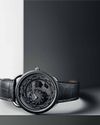
Tate Modern may be an international superstar art museum today, but when it opened in May 2000, the critics hated it. “The triteness of these concepts and the arbitrariness with which they are applied can be irritating, and the juxtapositions are often visually jarring,” sniffed an editorial in The Burlington Magazine, the revered, long-running arts journal. “The overall lack of continuity is disorienting… [and] we are not reoriented or offered a fresh vision: the themed rooms tend to encourage an aimless wandering through a curatorial playground.”
Reviewers didn’t like the location (a grotty bit of the Thames’ South Bank), criticised the building’s design (a converted power station with much of the original interior left intact) and they lost it completely over the first temporary exhibition, Century City, which showcased art scenes from different cities of the world (“the section devoted to Lagos is so weak, you feel like a racist, imperialist, colonialist swine for daring to say it,” said, er, The Guardian). The strongest objections were to the grouping of the art by theme rather than period and to the amount of work from outside Europe and America. In truth, Tate Modern’s curators had expected a backlash but believed their way to be fairer and more interesting.
Frances Morris, the current director of Tate Modern, was there at the outset and remembers: “We genuinely thought it would be amazing but we didn’t feel at all confident that the press or the public would side with us. And, of course, the press hated it. They eventually came round, but it took them 15 years.”
هذه القصة مأخوذة من طبعة May 2020 من Esquire Singapore.
ابدأ النسخة التجريبية المجانية من Magzter GOLD لمدة 7 أيام للوصول إلى آلاف القصص المتميزة المنسقة وأكثر من 9,000 مجلة وصحيفة.
بالفعل مشترك ? تسجيل الدخول
هذه القصة مأخوذة من طبعة May 2020 من Esquire Singapore.
ابدأ النسخة التجريبية المجانية من Magzter GOLD لمدة 7 أيام للوصول إلى آلاف القصص المتميزة المنسقة وأكثر من 9,000 مجلة وصحيفة.
بالفعل مشترك? تسجيل الدخول

THE MILD HANGOVER
Hangovers get a bad rap. We know. If you’ve gotten this far in the magazine, you’ve surely divined that we’re mildly hungover most of the time.

AN ELECTRIC FUTURE
Polestar, the minimalist electric Swedish car brand, turns the voltage up on its competition.

LET'S GET REAL (ESTATE): LUXURIOUS LONDON
Royalty, shopping, the best tea and scones the world has to offer, and a lifestyle worthy of what you're working for. Here's why London is ripe for your next investment

NEXT UP....ZARAN VACHHA
As Co-founder of the events and talent agency Collective Minds and Managing Director of the Mandala Masters, Zaran Vachha is definitely not new to the culture scene, but he's certainly shaping what comes next.

WHAT I'VE LEARNED...
I DON’T WEAR SOCKS except in January.

The Body Is a Language
A bad handshake is such a turnoff; we feel irked when someone rolls their eyes at us; we can't stop pacing when we're nervous-ever wondered how certain body language has the power to change how we feel instantly? We explore why.

EYE OF THE TIGER
Hailing from Singapore, Japan and Brazil respectively, Evolve Mixed Martial Arts (MMA) athletes Darren Goh, Hiroki Akimoto and Alex Silva are proof that the ring demands as much from mind as it does from matter.

THE ADONIS COMPLEX
With the rise of superhero culture making a return and bringing with it the celebration of the classically ‘masculine’ body type, can men really overcome the pressure to conform when culture keeps getting in the way?

FUNNY BUT TRUE
A comedian, an iconic Singaporean, and now a man much evolved. After overcoming two years of pandemic limbo, unlocking career milestones one after another and undergoing a life-defining physical transformation, Rishi Budhrani is ready to emerge into the world renewed-and anew.

LIKE NO OTHER
With its horological triumphs, Hermès has truly come into its own as a watchmaking maison. In this exclusive interview with Esquire Singapore, CEO of Hermès Horloger, Laurent Dordet sheds some light on his timepieces' rising stardom and the importance of being different.